
When the University of Texas University Leadership Network launched in 2013, it had two main goals that remain in place today: to help students graduate in four years and to provide students who are under-resourced with an opportunity to participate in various forms of experiential learning without having to work.

The North Dakota State University Career and Advising Center team has found that its Employer Town Halls held via Zoom are a great way to disseminate information in a different format than just an email.

The Career and Life Design process that Hassan Akmal created is evolving. Today, AI makes this pursuit more tangible than ever, acting as an unprecedented sounding board for self-exploration.
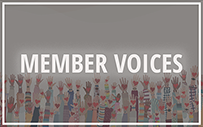
Large organizations can be intimidating, but getting more involved and finding your community within an organization can help you thrive both personally and professionally.
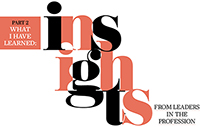
In the second of a two-part series, 13 NACE leaders offer their insight and guidance about what they have learned in their time in the profession.

Career center budgets for the 2024-25 academic year have increased across the board since 2022-23, according to results of NACE’s 2024-25 Career Services Benchmarks survey.

The University of North Florida (UNF) has historically offered innovative programs, services, resources, and events to ensure students are successful and career ready by the time they graduate. This approach led leadership to embark on a new path at the intersection of UNF’s core functions and NACE’s career readiness competencies.

Attendance numbers reflect the preferences employers and students have for the format of career fairs, results of NACE’s 2024-25 Career Services Benchmarks survey reveal.

The College of Arts and Sciences at Indiana University Bloomington recently launched its Pillars Undergraduate Experience, a framework designed to prepare students for academic achievement and lifelong career success.
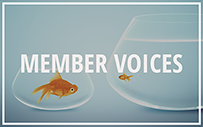
For many, success is shaped by external factors, but career services staff can help guide individuals to reflect on what success means to them through their own lens.

Research findings underscore the need for organizations to invest in enhancing recruitment and retention strategies for Latinas in senior executive roles.

Among the main reasons why career center staff are not using AI with students are concerns about the technology collecting students’ personal data.

Networking is a valuable tool for students that offers both career exploration and access to opportunities, particularly in a competitive job market. To get the most out of its networking events, USC Viterbi School of Engineering Career Connections has taken them through several iterations to reach their current format.

There are two primary reasons that career centers might lack confidence in using AI in their work: speed and ethics.

The most prominent elements of a successful partnership between an HBCU and an employer are gaining understanding of challenges, demands, and goals and changing behaviors.
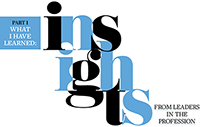
In the first of a two-part series, 13 NACE leaders offer their insight and guidance about what they have learned in their time in the profession.

Aurora University’s career services office uses ChatGPT as a tool to help its students prepare for job interviews and teach them ethical ways to use generative AI.

As a job candidate, students should pursue openings where their skills match the company’s needs, and by dissecting a job description and ensuring those key words find their way into their resume, students can stand out during the screening process.

To produce career-ready graduates, the Lehman College School of Business intentionally equips its students with competencies through the promotion of applied learning in its three programs.

Matt Purdy of Murray State advises career services professionals to think about the resources they are trying to obtain and find data that not only align with what they are asking for, but to connect them to the priorities of their administration or institution.
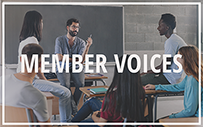
Many community College students take a nontraditional path to higher education, which means career services staff need to ensure an individualized approach to supporting each student.

The Georgia Tech Career Center, large-college winner of the 2024 NACE Career Services Excellence Award, hired eight new staff members across various functional areas within the office in a process that aligned with the institute’s DEI Blueprint to, in part, closely reflect the demographics of Atlanta.

With professional pursuits, quality invariably outweighs quantity, so career services staff should work with students to find good fits rather than trying to meet arbitrary deadlines.

Fear of AI has turned into curiosity, says Jeremy Schifeling, who reports seeing more and more career leaders getting excited about leveraging these tools for both their students’ and their own success.
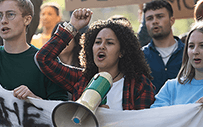
The political and social unrest seen on college campuses last spring and that may potentially reignite this fall has little impact on college recruiting, according to results of a recent NACE quick poll.

Attendees of the USC Leventhal School of Accounting’s inaugural “Accounting Without Walls” Festival left with actionable plans to implement DEI strategies in their organizations, a deeper understanding of the current DEI landscape in accounting, and more.
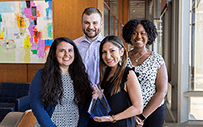
The University of Illinois Chicago, College of Liberal Arts and Sciences Career Development Office, winner of the 2024 NACE Career Readiness Excellence Award, designed an innovative eight-week, one-credit career strengths-based course for its students.

The college winner of the 2024 NACE Technology Excellence Award, University of California, Berkeley Career Engagement used Google Workspace products to create a data-visualization dashboard to tell its story in a low-cost, efficient manner.
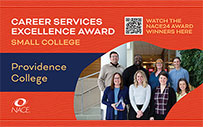
The small college winner of the 2024 NACE Award for Career Services Excellence, Providence College’s Chirico Career Center has created and honed an engaging program designed to help students as they consider their majors and explore potential careers.
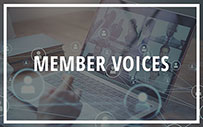
The NACE Liberal Arts Affinity Group reflects on its many accomplishments since last year's conference and looks ahead to next year.

Northwestern Mutual shifting the focus of its internship program to development of career readiness competencies seemed like a natural progression since the company was already focusing on themes similar to those identified by NACE’s competencies.
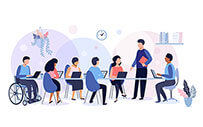
Winner of NACE’s 2024 Diversity, Equity, and Inclusion Excellence Award for colleges, the Georgia Tech Career Center’s Georgia Tech’s AuthenTECH Partnership initiative leverages staff to provide population-specific resources, expand programming, and cultivate partnerships to advance equitable career outcomes.
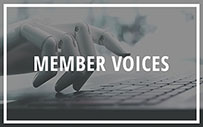
Because of the potential challenges of using career services effectively, international students may turn to artificial intelligence for their career-related questions without fully realizing the possible negative outcomes related to it.

Results of a NACE quick poll identify barriers and accelerators affecting the career paths of career services and university recruiting professionals.

Landmark College, an institution exclusively for students who learn differently including those on the autism spectrum, champions a strengths-based model and gives students the skills and strategies they need to achieve their goals.
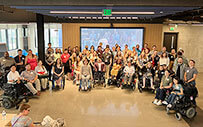
Winner of the 2024 Chevron Innovation Award, the Gregory S. Fehribach Center at Eskenazi Health empowers Indiana college students with physical disabilities to achieve equitable employment following graduation.
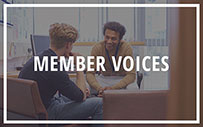
When it comes to advising students on the importance of professional skills, demonstrating those skills in your day-to-day can go a long way.

Belonging at work—feeling that one is valued, accepted, and supported—helps to ensure a healthy, productive, and positive work environment. NACE surveyed its membership to better understand their experiences with belonging in the profession.

For Spring Hill College, the work to attain a high knowledge rate on its first-destination survey begins in the fall.
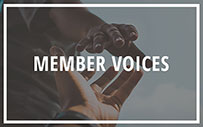
NACE offers many options to get involved, and those who choose their pursue volunteer opportunities can experience both personal and professional growth.
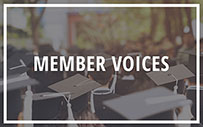
Because all talent acquisition specialists have had their own unique journeys, embracing those experiences can help them better understand and connect with students.
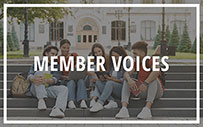
Career centers that integrate into all parts of a student’s journey in college are better positioned to effectively serve students and demonstrate their value on campus.

Cayuga Community College’s career services office launched its microcredentialing program in 2018. Since then, it has been building microcredentials in the non-credit and credit side of the institution, including developing its microcredential program and updating it to an online learning platform.

Despite achieving a knowledge rate of 90.6% on its most recent first-destination survey, the Roanoke College career center is tweaking the survey’s process to improve it.

Centre College’s three-year average knowledge rate for its first-destination survey (FDS) stands at an impressive 98%. This is especially notable given that the survey wasn’t required for students until 2023.
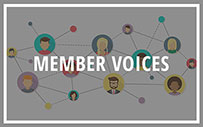
Because students may lack the professional network to get noticed, career services staff can help by leveraging their own networks to highlight students to potential employers.

The University of Dallas career development office listened to student feedback to pivot from texting students career-related information to sending messages via email. The results have been impressive.

Women remain underrepresented in computer science majors and careers. Two researchers conducted a study to see how women in computing experience and make sense of their internships, and how their internship experiences shape their future career plans.
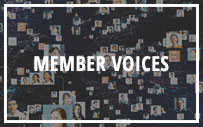
Students who begin building their social media presence while still in college will have an advantage after graduating, and there are several easy steps they can take to get started on LinkedIn.

The University of Western Florida CDCE recently launched its AI Career Toolkit to address AI use, challenges, and possibilities by students exploring careers and the career coaches supporting them.

The Yale Office of Career Strategy enlisted the help of key partners to create an assessment tool that incorporates design-thinking principles and is available to everyone, not just Yale students and alums.
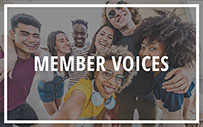
As Gen Z enters the workforce, there will be a shift in workplace culture and expectations, and employers who have embraced these changes have an advantage are positioned for success.

The career services office at Colorado Boulder launched an Artificial Intelligence Working Group to collect information on developments, discuss campus applications of AI, and more.

Caregiving students are more likely to tap into the help the career center can offer than their non-caregiving counterparts, but may be stymied by scheduling conflicts that arise with in-person offerings.
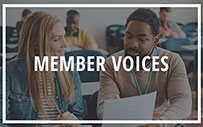
The classroom can be a valuable resource for students to develop the skill and mindset to think of themselves as professionals and describe how their skills relate to their field.

UCSD’s Rady School Career Management Center is addressing and creating resources around AI to guide students in its effective, safest, and ethical use during the college recruiting process.
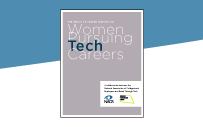
This study, a collaboration between NACE and Break Through Tech, provides evidence that career services can help level the playing field for women pursuing STEM careers.

As October is National Disability Employment Awareness Month, several organization offer resources about disability inclusion for employers and career services offices to use now and throughout the year.

To make McPherson College students aware of the skills they are developing during their campus jobs, Amy Beckman incorporated career readiness competencies into student job descriptions and supervision.

The University of California, San Diego Career Center developed the Triton Career Readiness Passport to help students launch a personal career journey by answering a simple question: Why?

Getting faculty buy in, having liaisons in different departments, and having the faculty be program champions was the key to the success of Georgia State’s “College to Career” career readiness initiative.

Career centers looking to increase FDS response rates might want to focus on communicating regularly with students, providing participation incentives, and ensuring the process is convenient for students.
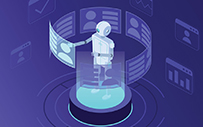
Automated video interviews (AVIs) are an emerging recruitment tool. As success factors in AVIs may differ from face-to-face interviews, it is important for career services practitioners to know how to help their students prepare for these new types of interviews.

Not only does PathwayU offer student assessments, but it also provides guidance based on predictive knowledge that accounts for the user’s sense of purpose and meaning.
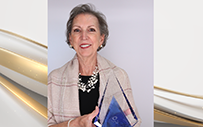
While moving to a virtual world and with little experience using virtual tools, William & Mary career center staff connected students and alumni by creating the Professional Development Academy.
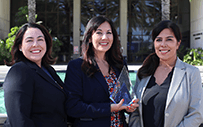
CSU Fullerton’s “I Am First” program teaches first-generation students how to create social capital through a curriculum that empowers students to cultivate agency in their career search.
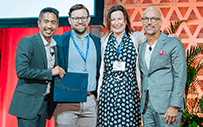
The Villanova University Disability Inclusion in the Workplace Conference is a half-day program designed primarily with hiring employers in mind to help them build disability inclusion into internship and entry-level hire experiences.
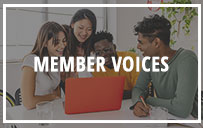
Internships can provide students with valuable professional skills but also a professional network, which can be even more valuable upon graduation.

Many URR and career services functions are using artificial intelligence (AI) to streamline their processes and enhance their operations. However, there are potential legal risks adopters should consider as they move from dipping their toes into the AI pool to fully diving in.

Dominican University, a Hispanic-serving institution with 64% of students identifying as Latinx and located just outside of Chicago, launched its successful career development program in its Brennan School of Business in fall 2017.

As we head into the warm days of the summer, the Class of 2023 is getting ready to make their mark on their first career destinations. They are starting careers in a world that is trying to emerge from a global pandemic but one that continues to grapple with social justice and equity.

In 2021, Hope College’s Boerigter Center for Calling and Career partnered with several computer science majors to develop a custom, interactive application for the college’s students and visitors to see a visual representation of the locations of Hope alumni around the world and their jobs. It also shows current job and internship openings in a given city.
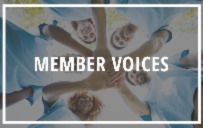
Through relationships made through volunteering, you can gain knowledge and perspective to grow both professionally and personally.

CUNY SPS recognized that certain curricula could better communicate to students how their courses address career competencies and the significance of the competencies in achieving career success.

BYU works to help students understand that they have these transferable skills and competencies that can be used in a variety of ways in a variety of situations.
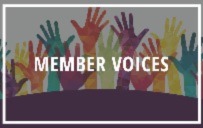
Deciding to volunteer may not always be an easy decision, but it will ultimately be a personally fulfilling one.

In a unique interview with ChatGPT, NACE asks the AI language model how it feels about its use as a tool in the job search, career readiness, and talent acquisition; the ethics of its use; and more.

To prepare students for their transition to the workforce, career centers have to account for the standards of professionalism shifting over the past several years.
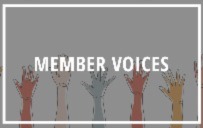
While people often consider the professional benefits of volunteering, it can also have a positive impact on your mental health, too.
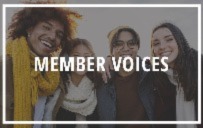
No matter what the “volunteer language,” there is always an opportunity to give back and support others.

Members of the NACE Community recently offered some suggestions to their colleagues for books to add to their summer reading lists.

NACE has conducted research that identifies important trends and unearths key insights that can help members enhance or adjust their operations to meet challenges and demands.
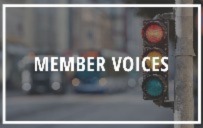
While many put pressure on themselves when searching for that first job or internship, it can be beneficial to take any shortfall as an opportunity for personal exploration and growth.
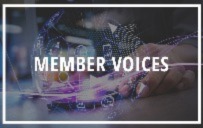
It’s useful to take time to develop your strategy and be mindful of possible trouble spots such before sharing new ideas.

At the University of Cincinnati, students facing financial constraints can access a grant designed to enable them to engage in career-focused courses.

A new $1 million gift supporting career development at William & Mary will triple the number of students annually who can receive university funding for unpaid and underpaid internships.

The University of Texas at Austin (UT Austin) is a public Research 1 university with 52,000 students and 18 colleges and schools, including medical and law schools. Like many large universities, UT Austin has a highly distributed model of 15 career centers within schools, and each area operates independently.
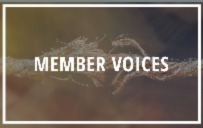
Employers who ask about weaknesses during an interview are typically seeking personal awareness and how a student can frame a strategy to minimize the consequences.

During the pandemic in 2020, LaGuardia Community College—a public community college that is part of the City University of New York (CUNY) system—inaugurated a new president, who is an advocate for workforce development as well as for internships. In addition, the chancellor for CUNY established career services as one of his priorities.

A grant from the United Negro College Fund (UNCF) helped to move career services to a position of more prominence at Tougaloo College and embed career readiness in the school’s curriculum.

Career services at Michigan State University (MSU) is a centralized/hybrid organization of offices and is well-known for its Career Services Network, which is composed of career services professionals strategically located in central and college-based offices.
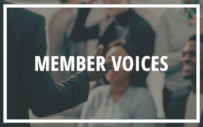
Every year, NACE hosts their Management Leadership Institute (MLI), which is designed to help participants prepare for leadership roles.
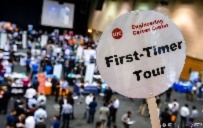
The University of Illinois at Chicago College of Engineering Job & Internship Fair Tours were created to engage more first- and second-year students in job fairs and to reduce barriers to attendance.

Employers are strongly committed to in-person college recruiting activities this fall as they are largely unencumbered by travel restrictions that organizations imposed during the COVID-19 pandemic, according to results of NACE’s Quick Poll on Fall Recruiting and Career Services.

There are key steps that employers and colleges can take to ensure that their culture is inclusive, such as providing training, planning intentionally, and holding employees accountable, says MarTeze Hammonds, Ed.D.

A University at Buffalo program uses project-based internships with local nonprofits to promote collaboration, interdisciplinary exchange, and the value of social innovation among graduate students.

College graduates in their early professional careers report significant mental health issues and view their jobs as a contributing factor. How can employers and colleges provide support?

Based on their forward-looking staffing plans for the upcoming year, it appears employers are expecting similar or higher levels of recruiting activity this year, according to preliminary results of NACE’s Summer 2022 Quick Poll on Fall Recruiting and Career Services.

The University of Redlands’ Career Faculty Fellows Program was launched in 2019 to help the institution scale career services and embed career preparedness more intentionally into the curriculum.

Skill development and early engagement are key priorities of New York University’s (NYU’s) Wasserman Center for Career Development. It addressed both of these priorities by developing a program that embedded career readiness competencies in a course for first-year students.

There has been a shift in the requirements of the labor market. Twenty-first century careers demand executive-functioning mindsets and tactical and relational skills, says Allison McWilliams, Ph.D.

In terms of their career interests and goals, members of Generation Z have an increased appetite for and awareness of entrepreneurship.
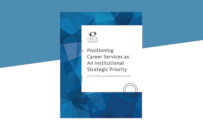
Career services needs to be strategically positioned on campus to provide the vision, guidance, and relationships to demonstrate its importance and value and to maximize student outcomes.

Soon after Mark Peltz was hired as the associate dean and director of career development at Grinnell College, it began a process of institutional elevation and prioritization of career services.

Employers overwhelmingly believe hosting internships is the recruiting strategy that yields the highest return on investment leading to entry-level hires.
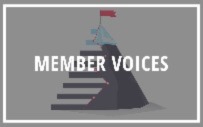
Students who set goals and develop a specific and measurable plan to accomplish that goal are more likely to be successful, and staff advisers can play a key role in this process.

The University at Buffalo’s Career Design Center has put an emphasis on maximizing available technology tools that can improve operations and better meet the needs of students and employers.

The UC Berkeley Career Center’s annual transfer student career summit is a five-hour virtual event that was created to help connect transfer students, who are often overwhelmed when navigating career opportunities, and employers that are not aware of the value transfer students can bring to organizations.
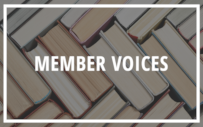
Memorial Day signals the unofficial start of summer, and for most schools, it marks the end of the busy graduation season. However, as this year’s seniors graduate, many NACE members were curious about how they could best share some final tips and advice as these grads transition from academia to the workforce.
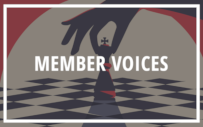
When a candidate is put in a situation to name a salary or negotiate a salary provided by the employer, the candidate is not being paid based on their merit and skills but rather on how well they handle a negotiation discussion.

In recent years, the overall knowledge rate of Davidson College’s first-destination survey (FDS) has been near or above 90%. Davidson has found several steps—such as getting an early start, using texts, and providing tailored information—to be helpful in attaining and maintaining a high FDS knowledge rate.

How do you get more students to attend your career fairs? Career services staff often brainstorm new ways to get more students in the door—and NACE members are sharing their latest ideas.

Over the past 10 years, there has been a clear shift away from housing the career center in student affairs.
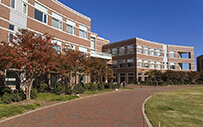
The career center’s name should reflect the services it offers to students, and help them identify it as a career development and job-search resource.
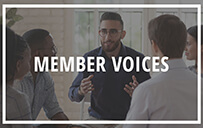
While taking that first step towards volunteering may feel daunting, especially for introverts, it can end up being a very rewarding experience.

The University of South Florida Sarasota-Manatee flipped the tables on the traditional career fair concept and held its first reverse career fair with much success.

Uncertainty surrounds the use of artificial intelligence among university relations and recruiting professionals and, to a lesser extent, among career services practitioners.

Schools that conduct an annual FDS to capture information on how their new college graduates fare following graduation can benefit their own institutions and demonstrate the value of higher education.

The University of Washington created an intern performance evaluation template that it shares with employers, and on and beyond campus.
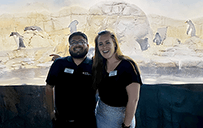
Winner of the 2023 NACE/Chevron Award, the IUPUI First Generation Career Connection Night connects first-generation students to employers to build their social capital.
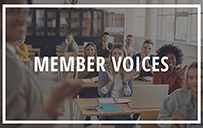
Colleges must work to ensure that students are aware that skills they’re using and developing in the classroom can be an asset after entering the workforce.

How can your career center help students to prepare for their mock interviews and set up the mock interviews to maximize the experience?

Richmond merged career services and alumni services to elevate career services, provide additional resources for students, and more deeply engage alumni.

Initiative provides support and creates a culture of understanding for what it means to be a member of the LGBTQ+ community at a Catholic university.

How do career services offices handle their for-credit career courses? NACE members share their approaches.

The likelihood of students becoming paid interns increases if they went to the career center for internship assistance.

Members of the NACE Community recently offered some suggestions to their colleagues for books to add to their summer reading lists.

The reopening plan developed by the UNLV College of Engineering aims to minimize direct contact for services that can be effectively delivered online.

MI GEAR UP is a statewide program designed to provide support to students from high schools in low-income areas who are making the transition to college and throughout their first year there

The racial injustices that marked 2020 strengthened Roderick Lewis’ resolve to create a DEI scorecard for career centers to facilitate change in the employers engaging with their campuses.

Visibility and the tiering of school partnerships are two of the challenges Historically Black Colleges and Universities face in attracting employers to recruit their students.

While DREAMers tend to have qualities employers seek, there are several obstacles they face that career services professionals can help them navigate during the job search.

Many businesses and organizations are unclear about their ability to hire DREAMers who have DACA or TPS. In fact, employers are able to hire a DREAMer just as they would a U.S. citizen.

Even though the job search environment has undergone substantial shifts over the last five years—accelerated more recently by the COVID-19 pandemic—core aspects are intact.

Solo or small-staff career services offices can take steps to sustain a satisfactory level of career services and, in some cases, grow their operations.

Research illustrates the hit that career center budgets took during the pandemic, as more than one-third of career centers reported cuts to their personnel budgets.

Career services can play a vital role in helping student veterans realize their goal of meaningful employment after graduation.

It’s not surprising that fees for in-person career fairs were down sharply in 2020-21 compared to 2019-20, but the charges for hybrid fairs jumped for some employers.

CSU Fullerton’s “I Am First” program addresses the specific needs of first-generation college students and prepares them for the challenges they face.

When one HBCU career practitioner is building relationships with employers, she is looking for authenticity, a shared sense of purpose, and impactful engagement opportunities for students and the university as a whole.
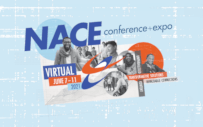
Over the course of the week-long NACE21 conference, it became clear that several topics—such as the new normal, professionalism, and career readiness—weighed most heavily on attendees.

Some career centers are seeking ideas for appreciation gifts that are unique, useful, and cost-effective that can be handed out to recruiters during on-campus events.

NYU’s Wasser-Buddies mentoring program helps shape institutional culture, equalize the experience of new hires, increase knowledge transfer, and enhance leadership development.

The UNO Campus Career Council supports students in achieving their career ambitions through shared knowledge of best practices and industry training.

Career services offices can help students develop their professionalism and navigate situations when “professional standards” may fuel and foster bias.
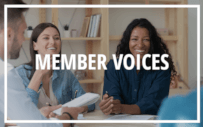
Volunteering with NACE can create meaningful professional and personal connections, develop and build skills on a resume, and create opportunities for growth.
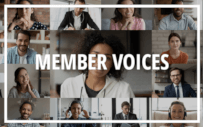
By getting involved in organizations that extend beyond your job, you can develop skills and relationships that can help you grow both personally and professionally.

Volunteering can help students gain valuable experience and learn about what workplace environments best suit their needs, which will be helpful when applying for jobs after graduation.

The College Autism Network helped create a curriculum to help career services professionals better converse about autism and support autistic students.
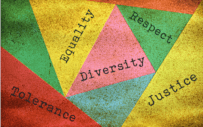
Part of the mission of UNH CaPS is to help employers establish or enhance employers’ work around diversity and inclusion by providing them with resources, consultation, and recognition.

While the COVID-19 pandemic caused many adjustments to the ways career services offices operate, they did not make substantial changes to their employer relations strategy.
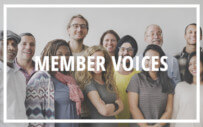
The National Association of Colleges and Employers (NACE) have scheduled the launch of Member Voices, a platform exclusively featuring member-created content with new articles published weekly.

The shift to the virtual space has allowed for collection of career fair data that may have been out of reach with the traditional format.

With student populations becoming more diverse, career centers need to change and adapt to their needs and be inclusive as they develop resources, opportunities, and programming.

Recruiting, onboarding, and retaining employees are not one-size-fits-all processes and there are challenges throughout. This is especially true for neurodiverse students.

URR functions and career services operations have received increased funding and resources to address racial injustice and the needs of historically marginalized groups, just at different paces.

When creating programs, resources, and services for marginalized students, Stanford starts with identifying issues and needs through focus groups, research, and outcomes.
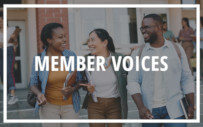
When working with employer partners, career services teams must keep in mind that career centers are not staffing agencies and student needs must come first.

Recent research suggests that career development programs that focus on key levers of economic mobility may play a critical role in reducing or eliminating racial wealth gaps for their participants.

TAMU-CT is building employer engagement opportunities in partnership with faculty that are “a little less virtual,” but better meet the needs of its unique student population.

To implement and foster an inclusive climate in higher ed, institutions need to create a culture of belonging, attract diverse talent at the entry level, and build intentional pathways to retain diverse talent.
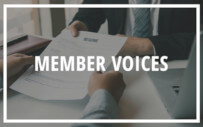
NACE members share their personal thoughts on resume professional summary statements and what information, if any, should be included by students seeking employment after graduation.

Reverse career fairs and reverse networking events can offer tremendous benefits, especially when held at small scale with specific program areas.

The Carolina Cluster forged a new model for career readiness and designed and implemented programs to improve employment outcomes for graduates.

Dr. Julia Overton-Healy of St. John Fisher College suggests career services offices need to recalibrate their understanding of who their students are and make changes to accommodate them.
To best serve a total student body, it is incumbent upon career centers to evaluate exactly who is using their services and how they are promoting their services.

Last fall, VCU began offering its Interdisciplinary Career Readiness Skills minor, an 18-credit pathway for students to develop today’s most highly sought-after job skills.

Over the next few years, $7.4 billion will be spent to bolster the underfunded, understaffed local, state, tribal, and territorial health departments around the United States. As a result, there are new career opportunities for every major and degree level, ranging from associate degree graduates to Ph.D.s.

To prepare students for their transition to the workforce, career centers have to account for the standards of professionalism shifting over the past several years.
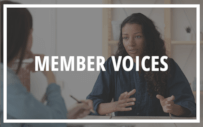
As students prepare their resumes and practice interviews for internships and postgraduation employment, it is important to remember that failures can be as important as successes.

The concept of recognizing feelings as real is a key step in developing emotional intelligence. The risk you run by not doing so is burnout.
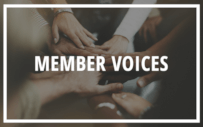
April is National Volunteer Month and a great time to reflect on all the positive benefits one can receive through volunteering.

One of the barriers that prevents more employers from partnering with community colleges is a general lack of understanding about what these schools and their students can provide.

NACE members share their ideas for fun, useful items that career centers can give to students during career fairs.
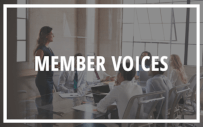
Getting involved in a NACE Affinity Group can be a great opportunity to connect with peers and gain valuable insights.
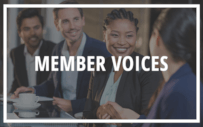
People may try to rationalize why they “can’t,” but NACE volunteers share their experiences and explain why everyone “can."

Auburn University’s high knowledge rates on its recent first-destination surveys is driven by the survey being part of a course all students are required to take.

A workshop at Notre Dame allows students to experience interviews from the perspective of both the interviewer and the interviewee, giving them valuable insight into the process.
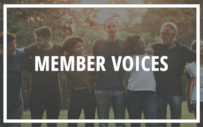
When it comes to volunteering, sometimes the opportunity can come unexpectedly, but accepting the offer can be fulfilling both professionally and personally